146. Nationality and Self; bilingual version.
I finally got my Spanish citizenship to prove that I'm Spanish but is it that simple?
In June I got my Spanish citizenship and I thought that my shiny new DNI (ID card) would be the end of the identity crisis I’ve had for the last fourteen years, but it only caused a new one.
I moved to Spain when I was seven years old and became fluent in the language and culture at around the age of ten. With each year that passed, the less contact I had with my “motherland” England. I was born in Leicester but then moved to Wales where I went to a Welsh school and ended up speaking English with a very Welsh accent. I’d say kah-la-rihn instead of colouring and knew my five times table in Welsh but not English. I guess I was never English from the start… Even though my family said I was. Maybe I was destined to be from everywhere and nowhere at the same time.
My childhood took place in Andalucía. Everything I know was taught through the lens of a Spanish teacher in a classroom and the more important life lessons were taught to me on el patio (the playground). I learned that summer starts on the 22nd of June and that we finish the year off with a fiesta de fin de curso (end of the year party) and that in summer you maldecir (curse) your abuela for giving you lentejas (lentil soup) or sopa de fideos (stock-soup with pasta). I was never given either but I knew that nobody wanted a red hot dish for lunch in the thirty five degree heat because I’d heard everyone complaining about it, while I could only fantasize about eating those dishes. I knew that gazpachito (cold soup) was what Spanish people craved and I knew that after the fiesta de fin de curso came la feria del pueblo (village fair).
My parents would take us to la feria and I’d run off to see my friends from school by la rana or la olla (two traditional Spanish fair rides). I knew the songs that were being blasted through the speakers while my parents had no idea how important Pam Pam Americano was for us all. We took photos for Tuenti (Spanish version of Facebook) and bought petardos (firecrackers) to throw at people’s feet.
Mum and Dad knew that la feria was to be taken seriously because all fiestas are important in Spain, but they had no idea about la fiesta de la espuma (the bubble party) that happened on the last day of the feria or that whole families ate together on foldable camping tables in the middle of the road that led to la feria at lunchtime. What to them was a summer celebration, to us was a way of living and I was caught in the middle of two worlds that I never fully fit into.
As I got older and left primary school behind, la feria became much more important. It was where you met boys from the other villages, it was where boys asked you to ride on the coches-choques (bumper cars) with them, it was where the cute boys showed off standing in the middle of la olla risking their lives, it was where we started drinking our first rebujitos (white wine and Sprite) and dancing en las casetas (tents with a DJ and bar that act as makeshift nightclubs). It was where we ate churros con chocolate (you know what a churro is) at 7 a.m in the morning like zombies. Again, how were my English parents supposed to know how vital it was to participate in all of these things as a teenager growing up in Spain?
I fought a long battle with my parents trying to get them to understand that my friends met for dinner at ten p.m. and went home at one a.m, and that if I had to be home by nine thirty, I was missing out on being a part of a social circle. I missed all the jokes, the special moments, the Tuenti photos, the first kisses, the things that essentially build a teenager’s life. I was condemned to never fully integrating and truly being a part of it all because I was caught in the middle.
Once I’d gone through my childhood in a pueblo Andaluz and reached my adolescence, I had no doubt about where I was from and I’d speak, think, dream, swear, write, read and fall in love in Spanish. My British family was the only thing linking me to England with religious Sunday Roasts and Heinz beans with mashed potatoes for dinner. I wasn’t maldiciendo mi abuela for cooking sopita in the middle of August, but I was wondering what my own parents were thinking while pouring red hot gravy over a hearty Sunday Roast while red in the face and sweating in the middle of a Spanish summer. I was raised in a limbo. After finishing my meal at eight p.m, I was allowed back out to meet my friends who were still by the pool, at the beach or sitting on a banco (park bench) opposite el kiosko Pili. At home I was following British customs but when I crossed the front door, I was back to being Spanish and dándole toques a mis amigos (calling your friend before they pick up) to get them to ring me because I had no credit. When my parents asked me where I was going, how was I supposed to translate “a dar una vuelta” to them? I’d try but it never meant the same and they’d never understand what that meant. While they thought I was up to no good late at night (22:00), I’d be sitting on a park bench eating bags of pipas (sunflower seeds).
When I was at home I was an English version of myself with certain manners that didn’t feel natural whereas when I was with my friends, I was a much truer version of myself and it’s strange to think that my parents and family will never know that side of me. They know the English version they brought up and educated, but there’s a whole other side to me that they don’t know because they don’t speak the language and they don’t understand the customs and importance of things that have marked my life. It works both ways because just as they’ll never understand what Telecinco means, I’ll never truly understand things like Coronation Street or East Enders.
I’ve been asked hundreds of times whether I think in Spanish, whether I dream in Spanish or whether I feel English or Spanish and the answers never change but I’ll always be a strange being to my British family that are fully English and aren’t fluent in another language. When the answers to all of those aforementioned questions is “Spanish”, they still say that I was born in England so I’ll always be English. That my surname is English so I’ll always be English. Or that my blood is English so I’ll always be English. But in reality, I won’t ever be.
I know nothing about the British royal family, I know nothing about the government, I know nothing about the popular TV shows, the celebrities, the festivities, the geography; so how can I call myself “English”? Ask me about la Pantoja, Sálvame, Telecinco, Pedro Sánchez, PP y PSOE, Pablo Iglesias, La Que Se Avecina, Torrente, la romería, la giralda, Aquí No Hay Quién Viva, Física y Química, El Barco… But don’t expect me to know any of the equivalents in England. Being from somewhere implies a lot more than speaking the language and when it comes to the UK, Great Britain or England, I’m lost.
I was sure that once I had Spanish nationality I’d feel Spanish. I was sure that pulling out my DNI instead of my permiso de residencia permanente (permanent residency card) would make me feel comfortable saying “soy española” (I’m Spanish) but I don’t. Don’t get me wrong, I know that a Spanish passport nowadays means something due to Brexit, but on a personal level, it’s not changed anything. In fact, it’s caused a whole new identity crisis because I now have a new surname because in Spain you not only have your father’s surname, but you’re also given your mother’s maiden name. So a surname that meant nothing to me apart from associating it to my mother’s side of the family is now mine too.
I waited anxiously for years and years to be able to apply for and receive Spanish citizenship thinking that all of my weird childhood wounds would be healed by this magic piece of paper, but that hasn’t happened. I’ve received peace of mind for not having to think about the application or treating my paperwork like lingotes de oro (gold ingots), but I’m still me. I still have a full-on English name and surname, I still speak English with a proper British accent, my family still lives in England and I still speak to them all in English on a daily basis; so what’s changed?
I spent my whole life thinking that one event would change me forever and it didn’t. Everything stayed the same inside of me and I’m still the same person to everyone that knows me. I’m still la guiri (the foreigner) and always will be no matter what emblem’s on the cover of my passport. We spend years of our lives thinking that one future event will forever change us and when it arrives, it surprisingly doesn’t change much at all. Or if it does cause a change, it’s never as big as we envisioned it to be. I guess that this has taught me that blood speaks no language, patriotism is carried in the heart, language has no borders and at the end of the day, you are much more than a nationality and you fit into so many other boxes whether others are able to see it or not.
Emily is Emily. And Emily will forever be the best of England (beans on toast, Sunday roasts, English breakfasts, mushy peas and gravy, milky tea with biscuits and Cadburys flakes in ice cream cones) and the good and the bad of Spain because that’s what’s raised me and molded me into the person I am today. My dear friend Dora once called me a sándwich mixto (ham and cheese toastie) or where I come from: un pitufito and I can’t imagine myself being anything else. And I’m finally ok with saying that I don’t want to be anything else. I want to always be Spanish with a hint of British.
STUFF I WANT TO SHARE ↓
I haven’t been reading as many newsletters because I’ve been reading more books. I’m currently reading On The Savage Side by Tiffany McDaniel and so far it’s absolutely incredible but so distressing and heartbreaking to read. I must admit that these are my favourite types of books to read but they’re not for everyone.
I’ve also been going out on long runs in the countryside and doing weight training for the first time in my life. I’ve been wanting to take better care of myself and so far it’s been great. This time, I’ve approached physical activity as something I want to do to take care of myself instead of telling myself that I want to lose weight, and that’s caused me to be more active than ever. C and I have been playing tennis in the evening and I’m terrible at it but it’s also fun to be terrible at something and have fun while doing it. For this deep dive into health and wellness, I trust
with my whole heart and I have been going through War Kitchen’s magazine archive and soaking up all the valuable info.While we’re on the topic of sport and weight,
wrote a beautiful piece about her experience with body image and how her body has changed over the last few years here: “no me siento cómoda en mi talla”And like everybody else on the planet, I’ve also been watching The Bear and think it’s a masterpiece. Kudos to all the chefs out there.

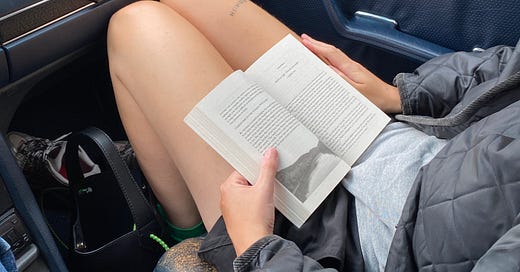


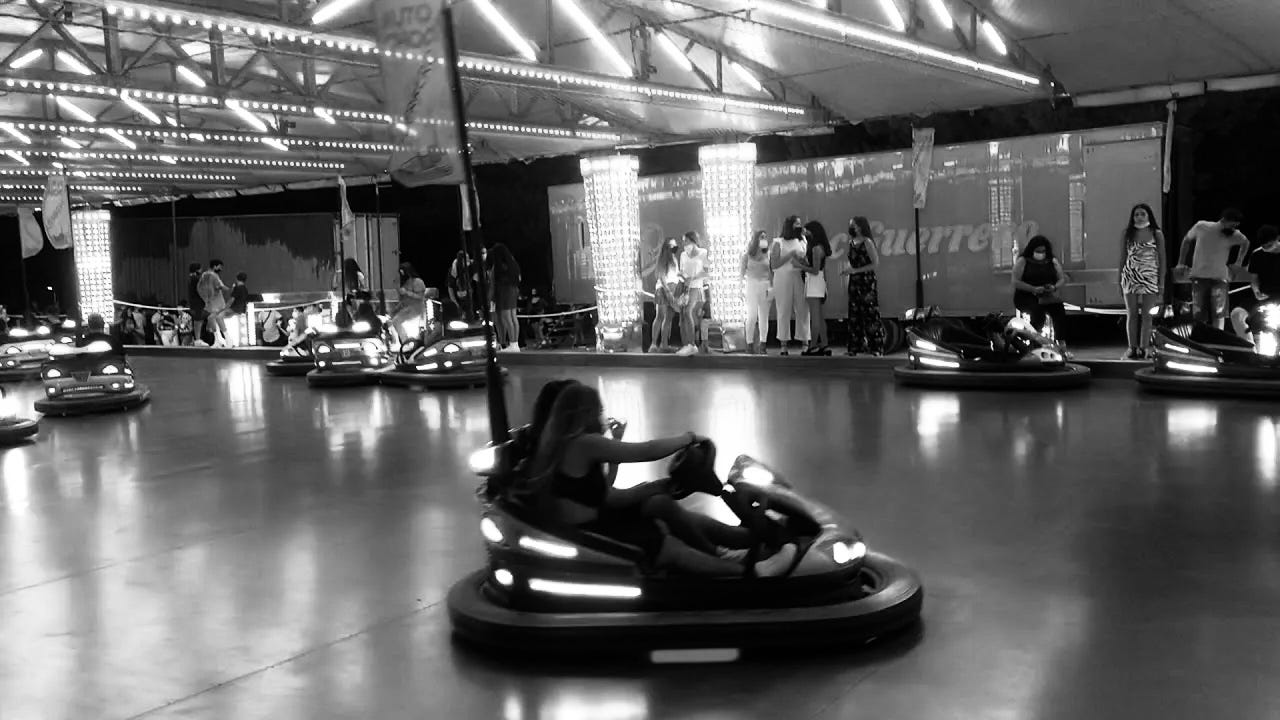
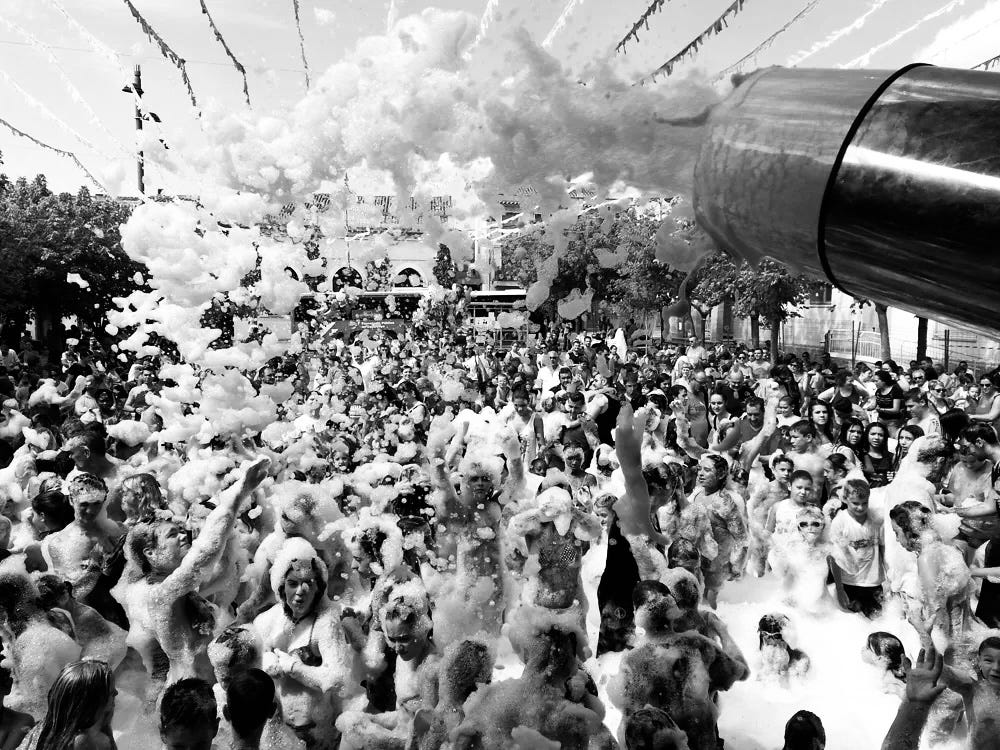
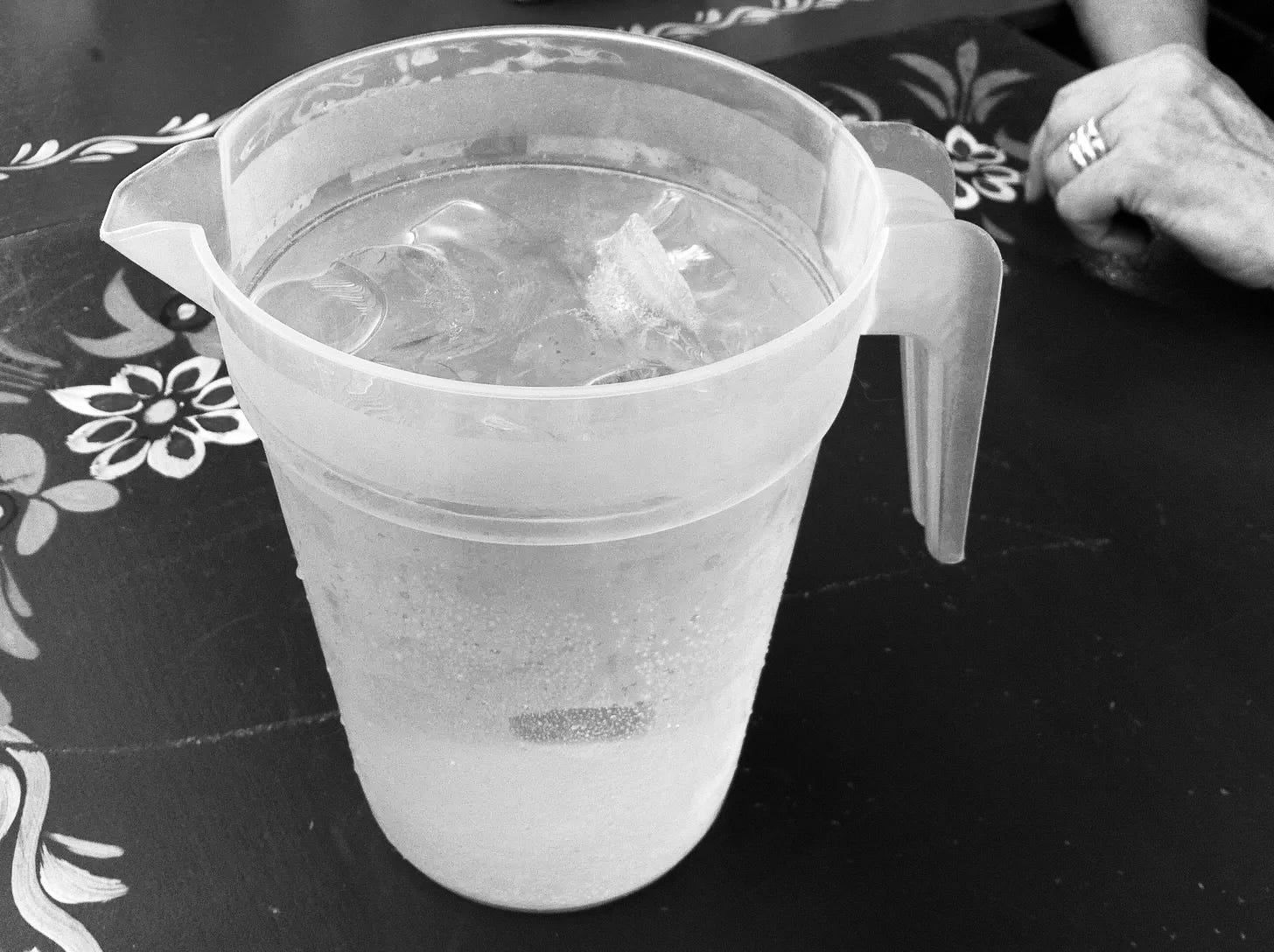
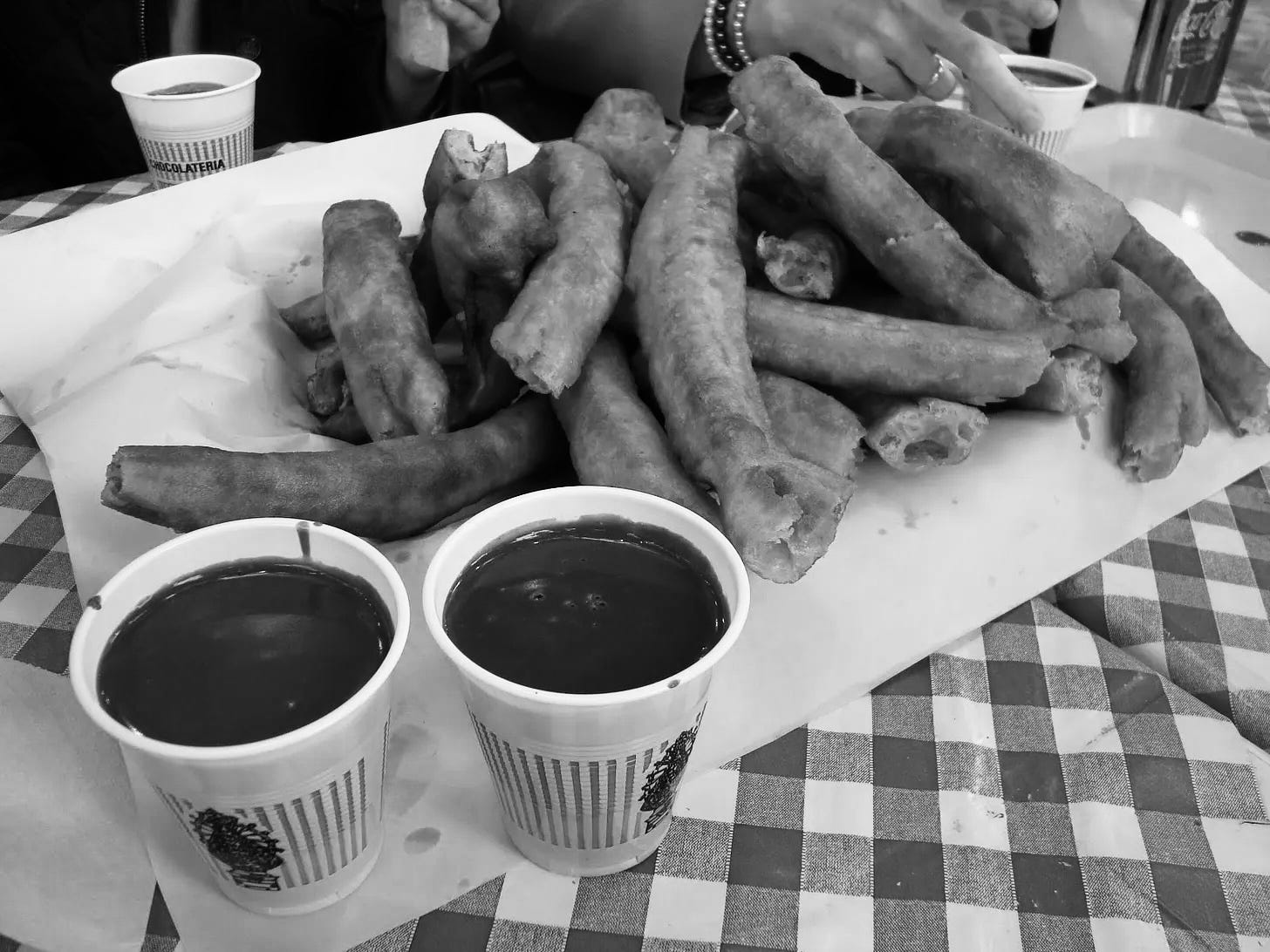
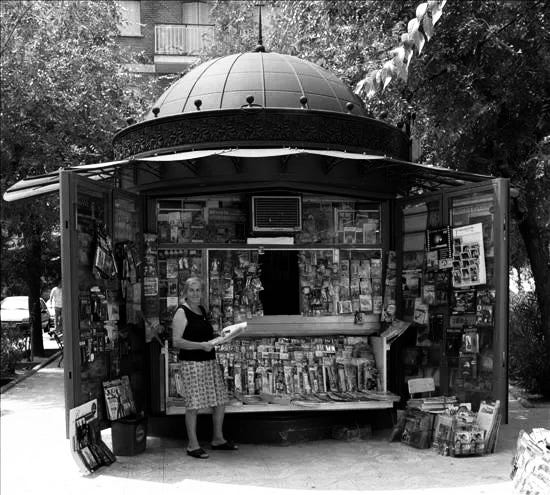



I resonate so much with your experience! I was born in Spain from a Spanish mother and Chilean father, but I spent most of my life in Costa Rica. Although my accent is totally Costa Rican, I was always too Spanish to be Latina and too Latina to be Spanish. Fortunately I didn't experience the language barrier that separated your life into two parallel worlds - it must have been so hard!. I don't know about you, but every time someone asks me where I'm from I feel like entering fetal position and shouting _next question_.
Thank you for sharing your experience! I used to teach English in Spain so it was always interesting seeing students with different backgrounds growing up Spanish. What part of Andalucía did you live in?? I